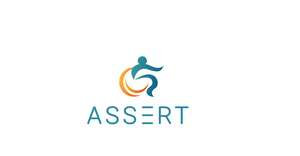Promoting Inclusivity in Energy Poverty: The ASSERT Workshop on Language and Disabilities

On November 27, an internal workshop was held as part of the ASSERT project, aimed at raising awareness and promoting the use of inclusive language when addressing energy poverty, with a particular focus on people with disabilities. This event provided an important opportunity for dialogue and reflection on issues such as disability, social justice, and a fair energy transition. Contributions from international experts, activists, and representatives of local organizations enriched the discussion, fostering an exchange of experiences and sharing of best practices for more inclusive communication.
The workshop, moderated by Stefan Bouzarovski, examined how language can shape the perception of people with disabilities and, consequently, their access to energy services. A central theme of the day was the approach of the UN Convention on the Rights of Persons with Disabilities (CRPD), presented by Antonella Candiago from ENIL. The CRPD, as an international legal instrument, plays a crucial role in defending the rights of persons with disabilities and advocating for language that respects and upholds their dignity. The presentation highlighted the importance of shifting perspectives beyond an individualistic view of disability, emphasizing the need to remove social barriers that hinder the full participation of people with disabilities in social and economic life.
A key intervention came from Dr. Harriet Larrington Spencer, an expert on physical disabilities and public policy. Her analysis illuminated how language can either reinforce or undermine the dignity of persons with disabilities. Dr. Spencer delved into the concept of ableism and provided concrete examples of how to avoid stigmatizing expressions. She also discussed the specific challenges faced by individuals with physical disabilities in the context of energy poverty, shedding light on the daily difficulties they encounter in accessing essential energy services. Her presentation paved the way for a broader reflection on how communication can influence awareness and drive policy action towards greater inclusivity.
Teodor Mladenov, an expert in co-production and participatory methods, presented innovative approaches to involving people with disabilities in decision-making processes. Mladenov, a lecturer at the University of Dundee in Scotland, discussed cooperative and inclusive methodologies for engaging people with disabilities in the design and implementation of policies and services, including energy-related ones. His intervention underscored the importance of a participatory approach that listens to and respects the lived experiences of people with disabilities to enhance the effectiveness of public policies.
Another significant contribution came from Silvia Cutrera, who discussed the importance of "empowering words." Her presentation emphasized how positive, empowerment-oriented language can promote the autonomy of persons with disabilities, not only in daily life but also within the context of energy poverty. The use of language that reinforces the concepts of ability and inclusion was identified as a key element in encouraging the active participation of persons with disabilities in social and political life.
The workshop also featured practical group sessions, allowing participants to discuss their learnings and reflect on how different terminologies affect the accessibility of energy services for people with disabilities. These discussions provided insights for developing common guidelines to promote inclusive and respectful language across all countries involved in the project.
The workshop concluded with a reflection on the recommendations that emerged, which will contribute to the creation of common guidelines for addressing energy poverty in a fair and inclusive manner. These recommendations will be used by Rete Assist to consolidate its commitment to a just and non-discriminatory energy transition. Future network activities will build on the insights gained, fostering projects that ensure equitable and sustainable access to energy for all, particularly for persons with disabilities. Language, as a powerful tool for social inclusion, can significantly contribute to building a fairer and more inclusive society when used thoughtfully.
 Print
Print
